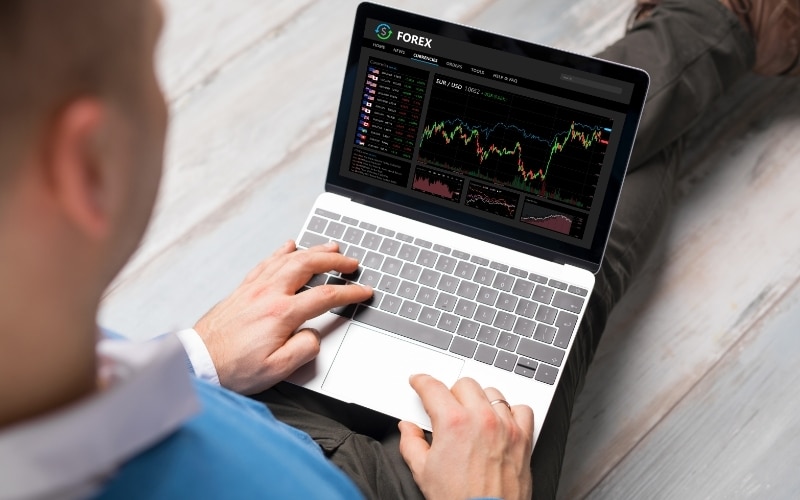The variety of forex trading accounts is just as diverse as in the banking sector. As banks create different products to suit particular clients, brokers also attempt to do the same. Aside from a standard live account, opportunities exist for non-trading individuals to invest in forex through the use of PAMM or copy trading.

For the trading individuals, there are a few other accounts they may not be aware of, which will all be covered briefly in this article.
Demo account
All beginners have to start with a demo or practice account for several months or even years before going live. One of the defining factors with a demo account is the use of virtual funds where there is no real money deposited.
The purpose of a demo account is to practice numerous strategies and ultimately develop a robust trading system that will work consistently and profitably in a live setting. A trader will be able to assess several critical performance measures in a risk-free, no-obligation manner.
Live account
Assuming a trader has spent sufficient time on a demo, all forex brokers offer a standard live trading account as their first option. This type is usually a no-frills account where traders can choose which available leverage to utilize.
There are a few other categories of a live account that will be covered later.
A live trading account requires real funds to be deposited by a client. The amounts can range anywhere from $1 up to $5000 (more for VIP accounts), depending on the broker. Fortunately, the minimum deposits nowadays are far more affordable, where we see more firms usually requiring between $50 and $200 on average, some even less or slightly more.
The spreads here can either be fixed or variable, and swaps and commissions may also apply depending on the type of live account.
Any losses incurred on this account during trading are not refundable. Although a standard live account would accommodate micro, mini, and standard lots, some brokers may offer an even smaller version catered to less-experienced and less-monied traders, namely nano accounts.
Nano account
A nano account permits a trader to open positions equivalent to 100 units of the base currency (0.001 lots). Such accounts can be a good stepping stone for newer traders who have just left the demo stage or those who are cash-strapped.
Zero spread account
A zero spread is a special type of account where, instead of variable spreads, a trader is charged a fixed commission per position by the broker. The aim is one always knows the cost of their trades in advance regardless of market conditions.
On a standard account with variable or floating spreads, traders are susceptible to volatile market conditions or thin liquidity where spreads can widen erratically. This account type is particularly beneficial for scalpers or high-frequency traders, though anyone else can still find it useful regardless.
Most brokers do require higher minimum deposits than other accounts, and commissions will vary.
Islamic/swap-free account
An Islamic account is a trading account designed for Islamic traders not to incur any swaps or rollover fees. A swap in forex is interest paid or debited for holding a position overnight, depending on the interest rate differentials between two currencies in a pair.
According to Sharia law in Islam faith, accruing any form of interest is forbidden. So swap-free accounts prevent any swaps, whether positive or negative.
Copy trading account
A copy trading account is a system for one or several clients to invest money with a designated trader whereby their positions automatically copy. From the investor’s perspective, no manual trading is necessary since whenever the experienced trader executes positions, these copy onto their account.
The platform will not only copy the trades, but will also adjust all the necessary risk parameters in line with the investor’s capital. The copy trading system is typically an innovation from a regulated broker, and there typically is a small fee per profitable position for this service.
Furthermore, the platform will rank a list of traders according to their performance, where investors can observe where it’d be best to invest. Newer traders or those who prefer not to trade are keen advocates of copy trading since it allows them to invest in forex without trading. However, there are still risks, just as with manual trading.
PAMM account
A PAMM account has many similarities to a copy trading account. An acronym for Percentage Allocation Management Module, a PAMM account allows a non-trading individual to invest with an assigned trader or ‘money manager’ whose positions are copied automatically onto the individual’s account.
PAMM allocates, as a percentage, whatever losses or profits from the master account onto the copiers’ account/s. A money manager can trade on behalf of one or several individuals. Large brokers are the ones who employ the software application running the PAMM system.
VIP account
VIP accounts, also known as premium accounts, are offered by brokers to affluent traders with large sums of trading capital and trading volume. Although this can vary, the minimum required deposit for such accounts starts from $50,000. VIP account holders enjoy exclusive perks like reduced spreads and commissions, a free VPS, a dedicated private account manager, and attendance to exclusive events, among other things.
Conclusion
The forex industry has evolved considerably from just offering a standalone live account. Clients can partake both in active trading and passive investing through this variety of offerings.
For active traders, it’s always essential to understand what they’re getting from their broker. Even though copy trading and PAMM seem like decent options, the risk of losing money is still present for non-trading investors.








Leave a Reply